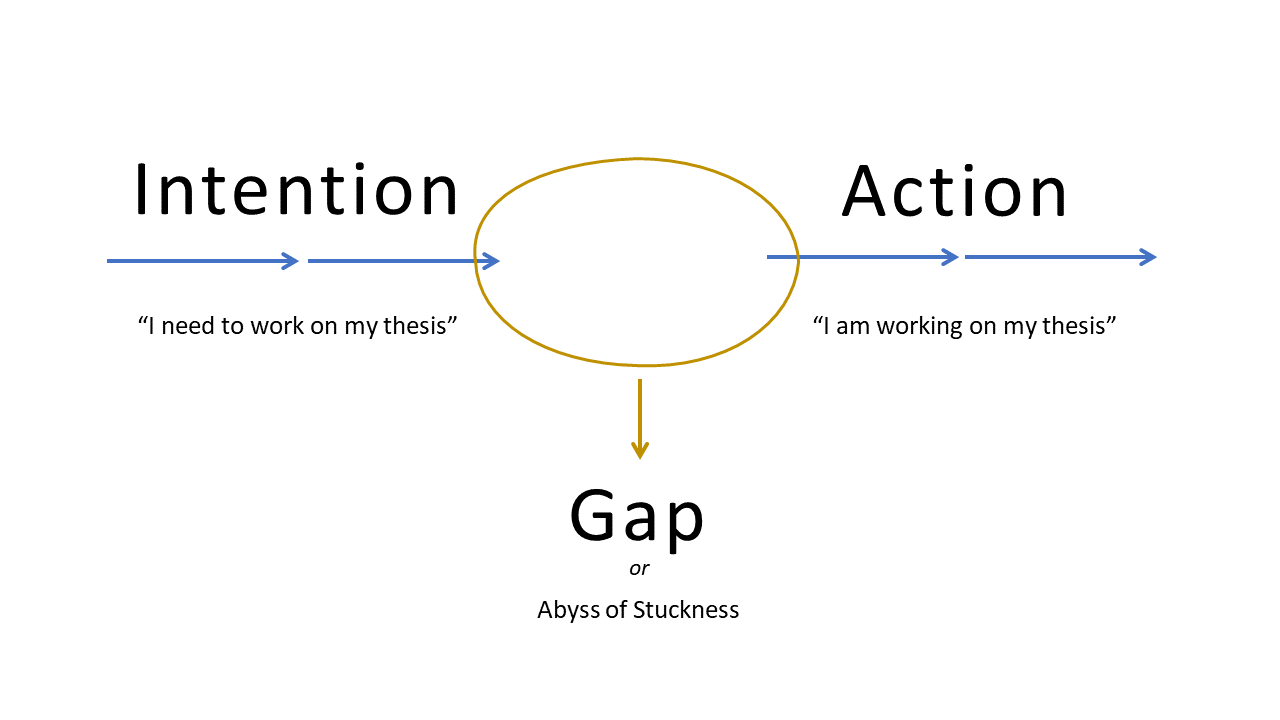When procrastination is getting in the way
Procrastination is a form of voluntary, irrational delay that has negative consequences on the individual. It is a habitual form of postponing action to a later date, without having a justifiable reason to delay. It is believed that procrastination interferes with the stage in between intention and action9. Take a moment to think about what causes you to fall into this gap (‘the abyss of stuckness’; Fig. 1).

Fig. 1 The abyss of stuckness
The general (combination of) reasons to fall in to the ‘Abyss of Stuckness’ are:
- Impulsivity10. You might get easily distracted as soon as an idea pops into your head. For example, when you are studying you might think about the dirty dishes in the sink and clean them instead of continuing your studying.
- Delay11. When a deadline is far away, you might use it as an excuse not to work on something or say that you work better under pressure.
- Proximity to temptations9. For example, when you have to work on a computer and can easily open social media or study in your student room which doubles as your living and relax space.
- Tiredness10. You might feel like you do not have the energy to sit down and work.
- Perfectionism or low self-confidence. You might avoid starting a task because you feel like you cannot reach the high standard that you want the end result to have.
- Learning disabilities. For example dyslexia, AD(H)D, autism, chronic illness, mental health disorders, or physical impairment. You might feel defeated before even starting a task or have trouble concentrating. Know that if you struggle with a disability, you can talk to the study supervisor of GEO who can help you apply for special facilities and support at Utrecht University.
Being aware of why you procrastinate is the first step in building up different responses and avoiding it. Often, it is a combination of several of the examples above that contributes to inefficient studying. Now that you are aware of which habits you easily fall into, mitigate your response by acknowledging the start of the procrastination behaviour, taking a short break, and starting your task again.
If you feel like procrastinating behaviour is holding you back from achieving your goals and want to solve this, a good place to start is to follow the online procrastination e-modules of Caring Universities. Each module has a step-by-step explanation about habit, thought patterns, the definition of procrastination behaviour, and how to deal with this. At the end of one module you will get personalised feedback from your coach within one to two weeks. The online program is available year-round. On the platform you can get started in an accessible, anonymous, and free way. There are also modules available focusing on mood, stress, and corona-related complaints. Caring Universities is a collaboration between Vrije Universiteit Amsterdam, Leiden University, Utrecht University and Maastricht University.


